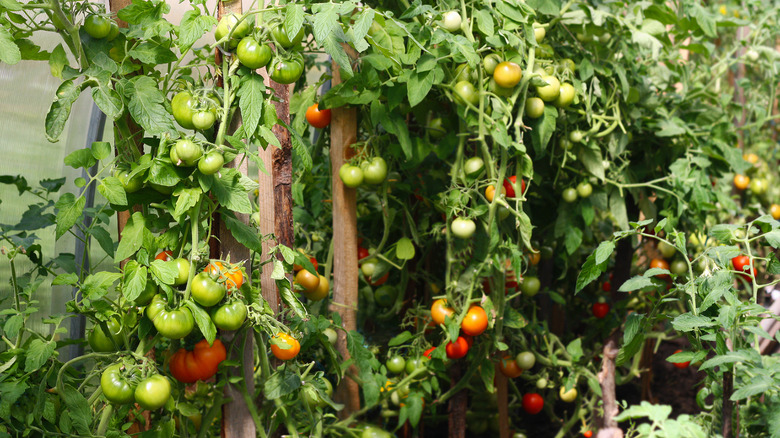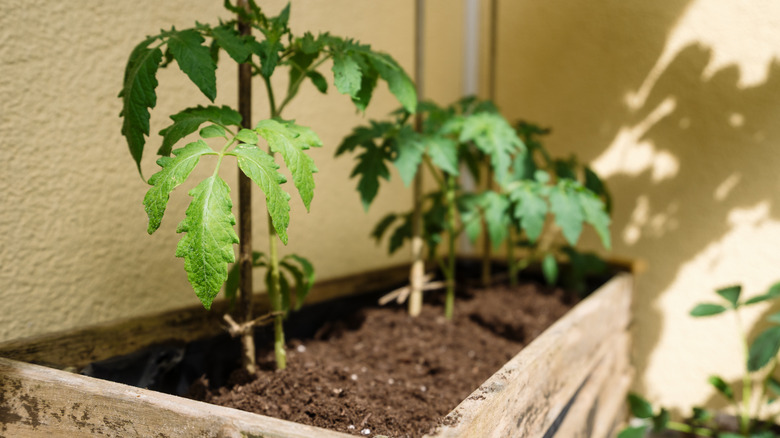The Unexpected Type Of Fertilizer That May Help Your Tomatoes Grow Big & Tall
Composted bison manure is likely not the first fertilizer to pop into your mind for tomato growth, but it just may offer the nutrients these plants need — plus, it also boasts a few advantages over other manures. While there's no scientific evidence that states using composted bison manure results in tall tomato plants, it has been shown in a research study to boost vegetative mass and scale in other plants.
Bison manure is packed with nutrients that plants love — calcium, sulfur, magnesium — and three especially favored by (and often deficient in tomatoes) — nitrogen, potassium, and phosphorus. Scientists suggest that today's tomatoes are more vulnerable to disease because the soil no longer contains the microbes to protect them. While no studies link tomato microbe needs with bison manure, this manure has been shown to provide a broad variety of microbes in one type of bison. Bison manure may have fewer pathogens than cow manure because bison eat mostly grass, while cows typically eat grains and grass.
As you ponder trying composted bison manure, you'll want to avoid important mistakes when using manure in your yard or garden, such as not testing the soil first. To specifically target tomatoes in your soil prep, learn about the best type of soil for growing healthy garden tomatoes.
Take advantage of nutrient-rich composted bison manure
Commercial bison manure products are available, but if you have access to raw manure, you'll want to at least age it and probably compost it. Composting the manure is desirable to control pests and odors, make the finished product easier to spread, and preserve nutrient integrity. It's not difficult to make your own DIY compost, especially when it contains just manure and a few other ingredients.
Bison manure contains too much nitrogen and moisture to decompose without adding carbon-rich ingredients, such as leaves, sawdust, wood chips, or straw. Turn the pile regularly to supply oxygen. You'll know your bison manure compost is ready when its consistency is like soil, which could take up to eight months. Some experts also recommend allowing the compost to rest and stabilize for up to a year before spreading it in the garden. It can be said that bison manure built the American prairie by enriching the soil, so consider trying it to see what it does for your tomatoes.

